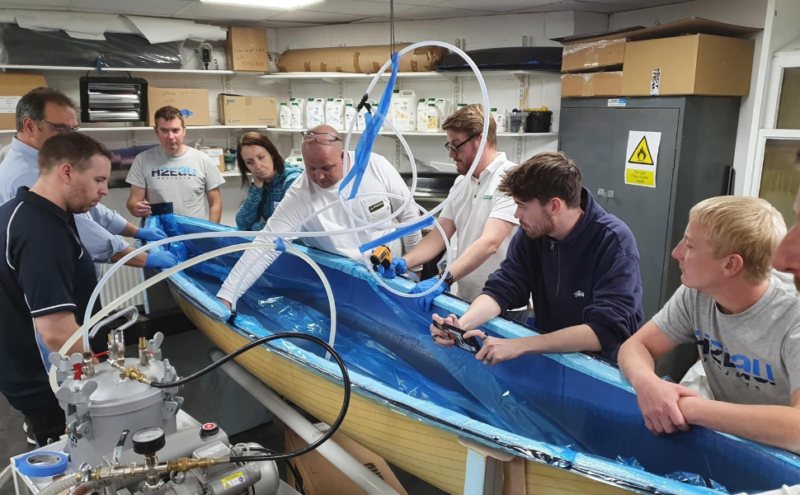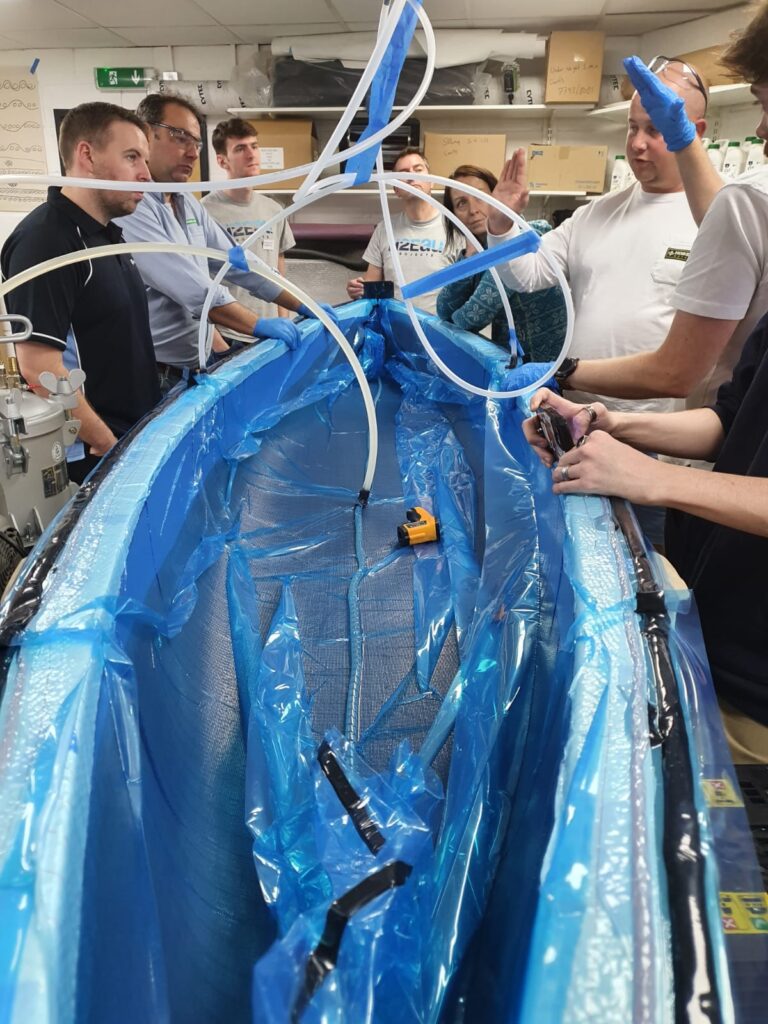Projects: PRO-SET® Epoxy Kayaks with Vacuum Infused Fibreglass and Carbon Technology

Kayaking, a popular water sport, has seen significant advancements in technology over the years. One significant advancement is the use of PRO-SET® Epoxy in kayak construction. This technology leverages Vacuum Infused Fibreglass and Carbon Technology. This approach transforms kayak construction, providing a multitude of advantages compared to conventional methods. These materials demonstrate outstanding physical properties at room temperature, and post-curing can further enhance their performance optimisation.
The vacuum infusion process utilises PRO-SET Infusion Epoxies introduced into a vacuum. This process ensures thorough wetting of the dry fabric laminate. An example of someone who has used this technique is HF Industri & Marine’s vacuum expert Ben Denham, who made two vacuum infused fibreglass/carbon PRO-SET Epoxy kayaks in a weekend.
So, What Are the Benefits of Vacuum Infusion?
PRO-SET Infusion Epoxies are ultra-low viscosity systems. These epoxies come with a variety of hardeners to cater to the requirements of contemporary infusion processes. These lightweight, high-performance composites endure long-term cyclic loading in the most severe conditions. They showcase excellent physical properties at room temperature, and post-curing can further optimise their performance. For visual quality control, dye Infusion Epoxies. A proper mix of yellow dye in the resin and blue dye in the hardener results in a consistent green shade.

Technical Characteristics of PRO-SET Infusion Epoxies
The weight mix ratio, a critical factor in achieving the desired properties, stands at approximately 3.65:1. The mixed viscosity at a standard room temperature of 25°C (77°F) is around 250 mPas indicating a fluid consistency that ensures easy application and excellent coverage.
The mixed density at 22°C (71°F) is approximately 1.14 gcm-3, which contributes to the lightweight nature of the final product. The material exhibits a compression yield of about 97 MPa, demonstrating its ability to withstand substantial pressure without deformation.
The tensile strength, a measure of the force required to pull the material to the point of breakage, is roughly 70 MPa. The material’s resistance to elastic deformation under load reflects a tensile modulus of approximately 3.4 GPa.
The tensile elongation, an indicator of the material’s flexibility, is around 5.0%. The flexural strength, which measures the material’s resistance to bending, is about 124 MPa, and the flexural modulus, which gauges the material’s stiffness, is approximately 3.2 GPa.
The Ultimate Glass Transition Temperature (Tg) via Dynamic Mechanical Analysis (DMA), a measure of the maximum temperature at which the material maintains its properties, exceeds 89°C (192°F), making it suitable for use in a wide range of environmental conditions.
These values demonstrate typical scenarios and should not be misconstrued as specifications. For exact values, refer to the Resin/Hardener Technical Data Sheets. Additional post cure may be required; contact the Wessex Resins Technical Team for details. Specific hardeners necessitate curing at elevated temperatures.
Email: techinfo@wessex-resins.com
Telephone: +44 (0)1794 521111
Find your local PRO-SET Epoxy Dealer here…

Have you subscribed to our FREE monthly newsletter? Sign up here!
Working on a project? Share it with us! Click here…
